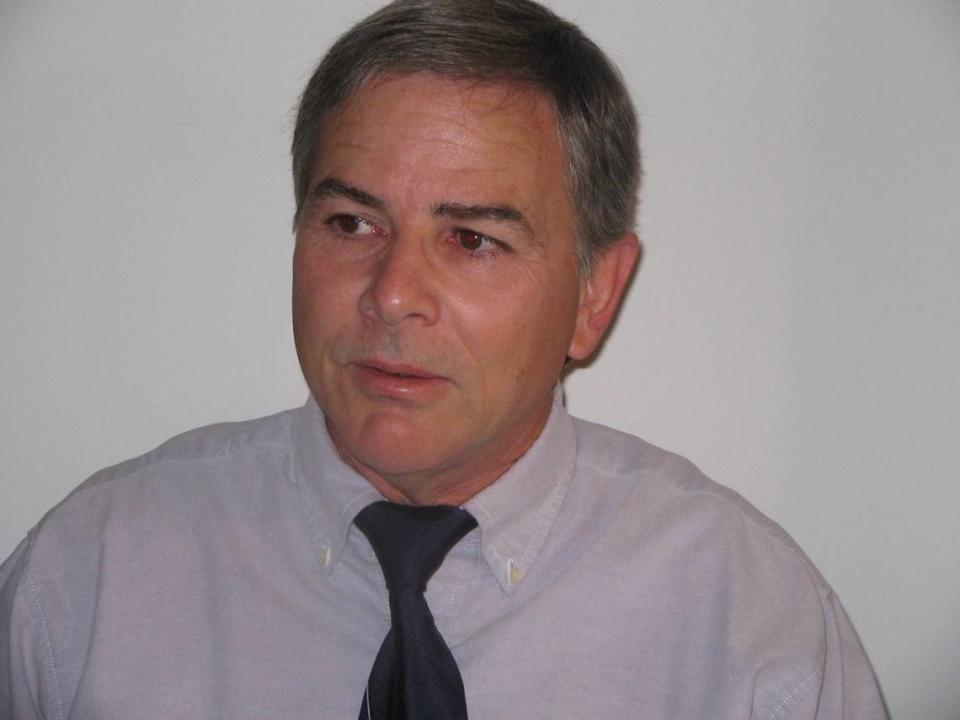The talk of Beshear in a higher office keeps coming, but is it realistic? | Opinion
- Oops!Something went wrong.Please try again later.
Painting a governor’s mansion blue in a sea of red turns heads in the political world. Andy Beshear has done it twice, and he currently ranks among the most popular governors in the country. He’s been mentioned in the media and around the internet as a possible presidential candidate since he first won office in 2019.
The buzz grows out of political inertia: 36 states have voted for the same party in the last six elections. Any sighting of a red-state whisperer (or a blue-state version such as New Hampshire’s Chris Sununu) excites the partisan imagination. Could the next incarnation of Reagan Democrats be, uh, Beshear Republicans?
Skeptics point to Steve Bullock, the Democratic governor of Montana who won reelection in the same year Donald Trump carried his state by 20 points. In 2020 Bullock ran for president on his ability to reach rural voters other Democrats couldn’t – and made nary a ripple in the primary. Politico’s Charles Mahtesian cited Bullock’s story when Beshear won reelection and added this:
“… Democrats aren’t truly convinced that they need what Beshear is offering. After all, Biden actually ran worse among rural voters than Clinton – and still managed to capture the White House.”
Other analysts have cautioned against making too much of Beshear’s success. As the son of a two-term governor, he enjoys a strong brand name in his home state. He won his first governor’s race against an incumbent who made enemies every time his lips moved, and his second against a challenger who thought he was running against Joe Biden.
If the governor has a political superpower, it may be his lack of governing power. The state legislature is so heavily Republican it can do whatever it likes, as it proved last year by overriding all 15 of Beshear’s vetoes. The imbalance makes party loyalty optional for voters choosing a chief executive. They will get Republican policy regardless.
Even if the governor is a kind of guilty pleasure for some of his crossover voters, it’s refreshing to see people support a politician just because they like him. Kentuckians like Beshear because, as Washington Post columnist Perry Bacon Jr. observed, “He is either very sincere, kind and nice – or fakes all of that extremely well.”
Most of us think he’s real. We saw his responses to the Louisville bank shooting, flooding in eastern Kentucky and tornadoes in the west. We saw his efforts to inform and reassure us in his covid-era press conferences. That was when Gov. Beshear, for many Kentuckians, became “Andy.”
I have no idea how hot the “fire in the belly” that spawns presidential campaigns burns inside the governor. He told this newspaper in December that it would be OK with him if his current job was his last in politics. Yet in January he launched a political action committee to support candidates who eschew “the politics of anger, division and hate” – a profile he happens to fit. That sound you hear is the sound of a door not slamming.
Beshear’s obvious political talents notwithstanding, winning a presidential primary in 2028 seems unlikely. The same lopsided legislature that allows him to take liberal stands on issues that conservatives know will never become law also precludes legislative victories he could tout on the campaign trail.
A Beshear campaign would necessarily center on personality. But “Afternoons with Andy” was a one-season gig, and the bond Beshear formed with citizens over 16 months cannot be re-created with 30-second political ads. Meanwhile governors such as Gavin Newsom, Gretchen Whitmer and J.B. Pritzker are already nationally known and almost sure to run four years from now.
That’s not to say that a primary run would be a bad idea if Beshear gets an itch that a law practice in Lexington can’t scratch. It would introduce him to Americans and build name recognition. A good showing might put him on someone’s short list of running mates or in contention for a cabinet post.
Kentucky probably wouldn’t send Beshear to Congress to support a Democratic president or help obstruct a Republican. His career path would more likely resemble that of Pete Buttigieg, the South Bend mayor who, like Beshear, had little chance of going from a deep red state to Washington via vote.
Buttigieg entered the 2020 Democratic primary and rode his public speaking skills to a cabinet appointment. He’ll be back on the debate stage in 2027 with a familiar face and four years (or more) of executive branch experience.
Whether Beshear is up for playing the long game, or any game at all, is his secret. He probably can’t walk into the next primary and take first prize à la Bill Clinton or Barack Obama. But it’s worth noting that only three of our last seven presidents made it to the White House on their first try.
In 2032 Beshear will turn 55. Even after voters memorialize the 2024 election with an unwritten age limit, he’ll have years to chase the presidency if he wants.

Michael Smith is a freelance opinion writer in Georgetown, Kentucky.

